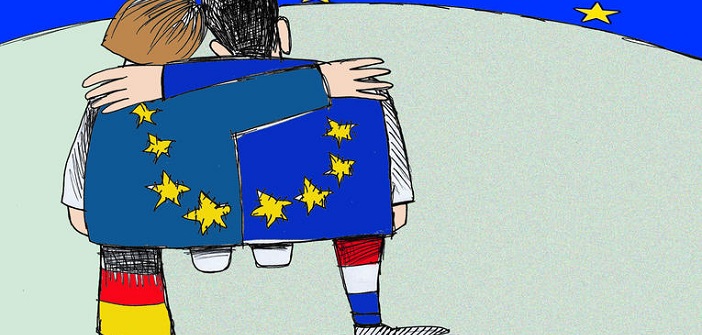Signed in the coronation hall of the Town Hall of Aachen, this text emphatically affirms how necessary and beneficial the cooperation between Paris and Berlin is, not only for the French and the Germans but also for the Europeans. It is within this framework that the French and Germans now place their actions.
“The close friendship between France and Germany remains an indispensable element of a united, effective, sovereign, and strong European Union,” it states.
Thus, Paris and Berlin commit to “strengthen their cooperation” in foreign policy, defense, or internal security “while enhancing Europe’s ability to act independently.” In terms of defense, they commit both to “strengthen Europe’s capacity to act” and to “invest jointly to fill its capability gaps” in industrial projects, etc.
Pragmatically, the text highlights the economy and defense rather than politics: it intends to lay the foundations for a tighter common approach between the French and German armies.
Certainly, this approach is only valid for “common projects,” with each country remaining sovereign over purely national projects. However, at least for significant investments, joint investment will become the rule. They won’t lack projects, among the military transport aircraft A400M, the Tiger attack helicopters, the NH90 transport helicopters, the future heavy tank, the future aircraft (beyond the Rafale), and the European surveillance drone (Eurodrone MALE).
The final virtue of the text is to advocate for the German claim to have a permanent seat on the United Nations Security Council. However, this advancement is tied to a broader reform of the United Nations Security Council that both countries commit to promoting.


